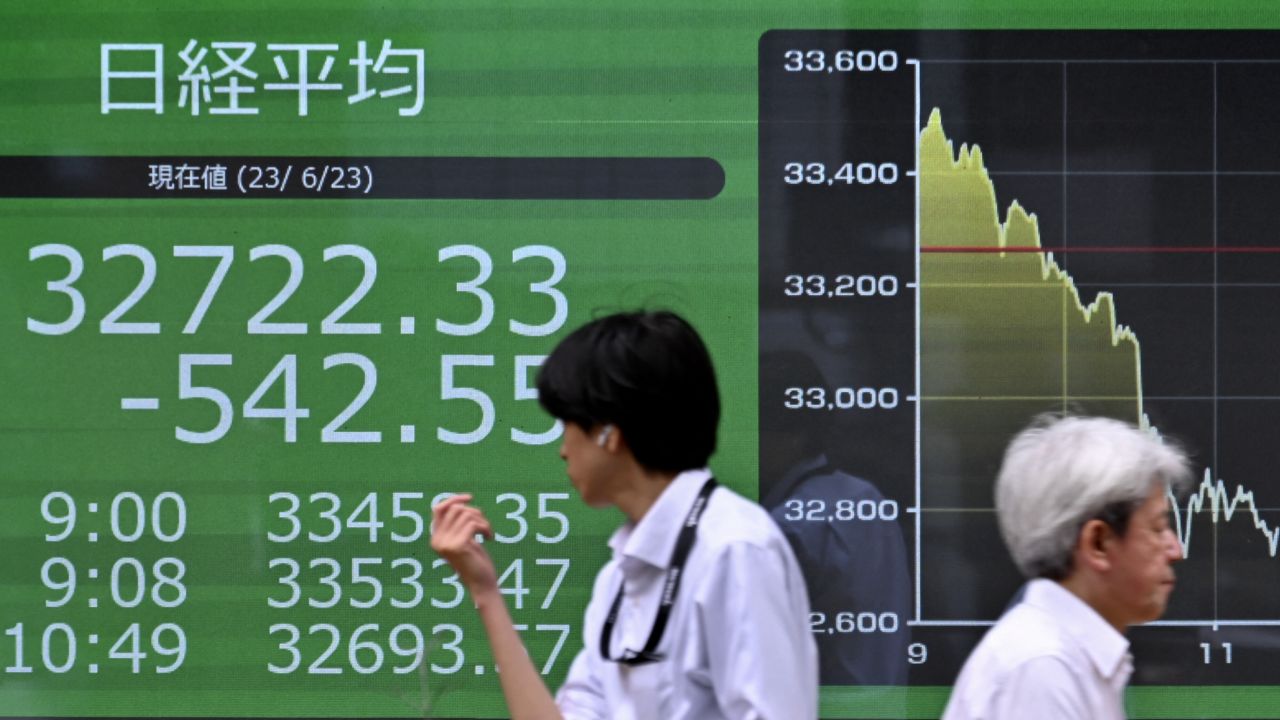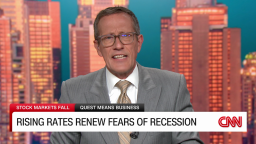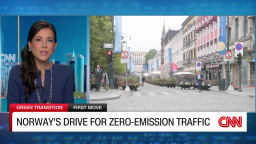Stock markets in Europe and Asia fell Friday as investors became increasingly worried that more interest rate hikes by central banks would tip major economies into a prolonged recession.
Hong Kong’s Hang Seng (HSI) Index led the losses, closing 1.7% down. Japan’s Nikkei 225 (N225) ended the day 1.5% lower and Australia’s S&P/ASX 200 shed 1.3%. Stock exchanges in mainland China were closed for a public holiday.
US stock futures are pointing lower, putting Wall Street on track for a losing week.
Federal Reserve Chair Jerome Powell said Wednesday that further rises in interest rates were likely necessary this year to bring US inflation down to the central bank’s 2% target.
This was followed by a sharper-than-expected hike in UK borrowing costs by the Bank of England Thursday, which opted for an increase of half a percentage point after data earlier this week revealed surprisingly stubborn inflation.
And earlier on Friday, data showed that Japanese inflation excluding fresh food and energy costs hit a 42-year high of 4.3%, fueling speculation the Bank of Japan might rethink its loose monetary policy and start tightening.
“The re-acceleration of global monetary policy tightening dampened markets’ sentiment across regions,” said Ken Cheung, chief foreign exchange strategist for Asia at Mizuho Bank.
Europe’s benchmark Stoxx Europe 600 index was flat at 6.20 a.m. ET Friday, after dipping earlier in the day. The CAC 40 (CAC40) in France was down 0.3% and Germany’s DAX (DAX) was 0.7% lower.
London’s FTSE 100 (UKX) index slipped 0.2%, adding to losses earlier in the week. It is now on track for its worst week since the US banking turmoil in March.
The Bank of England’s fight against inflation “comes at a potentially high cost to the UK economy, which may slip into recession later this or next year,” said Axel Rudolph, a senior market analyst at online trading provider IG.
Gloomy data
Members of the European Central Bank’s governing council reinforced the hawkish tone this week, despite signs that economic growth may be stalling again after a recovery earlier in the second quarter.
“The messages … continued to be focused on reassuring markets that policymakers will rather err on the side of doing too much rather than risking inflation running too hot for too long,” Oxford Economic said in a note published Friday.
The 20 countries that use the euro fell into recession around the turn of the year. Data from a closely watched survey released Friday showed hardly any growth in eurozone output this month.
The Stoxx Europe 600 banks index, which tracks big EU and UK lenders, underperformed broader European stocks, falling 1%. A prolonged economic slump would be particularly painful for lenders as it would make loan defaults more likely, with cash-strapped individuals and businesses unable to keep up with payments.
Fears about slowing economies around the world also pressured oil prices. Brent futures, the international benchmark, declined about 1%. US WTI crude was down 1.3%. Both have lost nearly 4% this week.
— Anna Cooban contributed reporting.







